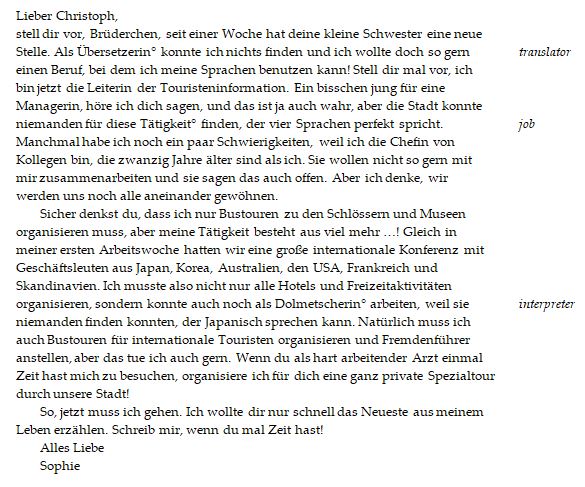1 What's your favorite way to study? Do you find it helpful to listen to a
lecture you have recorded? Or, do you like to rewrite your notes on your
computer? Perhaps your favorite way is to discuss the materials covered in class
with your classmates while having coffee in the cafeteria. For many years,
researchers, instructors and students have been interested in finding out the best
methods for improving learning. Several new theories have recently been
developed which have helped both instructors and students understand how we
learn.
2 In the early 1990s, Harold Gardner of Harvard University identified seven
types of intelligences that influence how we learn. According to Gardner, some
people have visual-spatial intelligence and learn best through using graphics,
charts, television and videoconferencing. Others have bodily-kinesthetic
intelligence and prefer to learn in hands-on situations and through body
movement. Still others rely on musical intelligence and learn through song and
rhythm. This group of learners also works best with podcasts and other
multimedia.
3 The fourth type of intelligence that Gardner has identified is
interpersonal. These types of learners learn best in seminars, through group
activities and through email. In contrast, intrapersonal learners are often shy
and prefer to work alone. They are often independent learners and benefit most
from reflection and from methods such as keeping journals. Learners with
linguistic intelligence are fond of words and enjoy reading, word games and
working on computers. Finally, learners with logic-mathematical intelligence
engage in learning best when they are solving problems or mysteries. They also
enjoy experimenting to discover concepts.
4 It is often challenging for instructors to meet the needs of these many
types of learners within their classrooms. In fact, as Gardner has noted, most
classrooms are designed for learners with linguistic intelligence and logicalmathematical intelligence. However, many programs offer independent learning
opportunities outside of the classroom that may help a variety of intelligences.
These programs are often connected to labs and study centers that include
computers and various digital devices as well as specific areas for study groups
to meet and discuss course materials. Additionally, if students are able to
identify their particular types of intelligence, they can create study activities and
develop specific study habits on their own. They can modify materials created for
linguistic or logical-mathematical learners to fit their types of intelligence.
Bodily-kinesthetic learners
a. need to have hands-on experiences.
b. need to keep written journals.
c. need to have problem-solving opportunities.
a
You might also like to view...
Lesen Sie die E-Mail und beantworten Sie die Fragen.

1. Was für eine Stelle hat Sophie gesucht, aber nicht gefunden?
_________________________________________________________________________________________
2. Warum gefällt Sophie einigen Kollegen nicht als Managerin?
_________________________________________________________________________________________
3. Was für eine Konferenz musste Sophie organisieren?
_________________________________________________________________________________________
4. Nennen Sie zwei Tätigkeiten einer Leiterin der Touristeninformation.
_________________________________________________________________________________________
5. Was ist Sophies Bruder von Beruf?
_________________________________________________________________________________________
¿______________________ se llama tu padre?
You decide to meet one of the guests. Complete the conversation you have with this person
What does Willy go in and ask Howard for? What does Howard say?
What will be an ideal response?
When the diplomat's car crashed on the way to the peace talks, he was killed. His
service award to the nation was then given __________. a. foremost b. metaphor c. inference d. posthumously